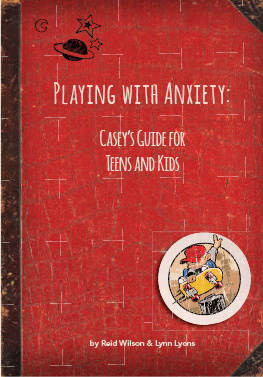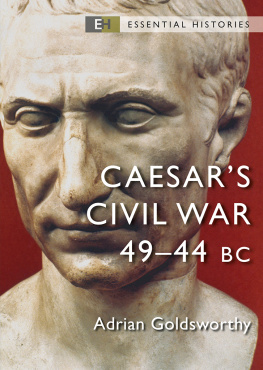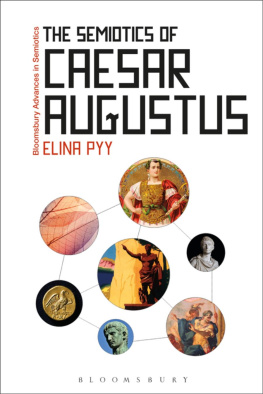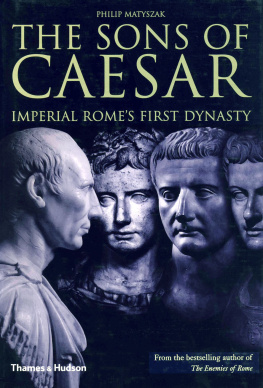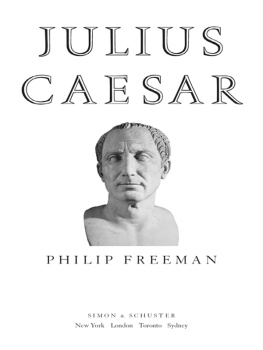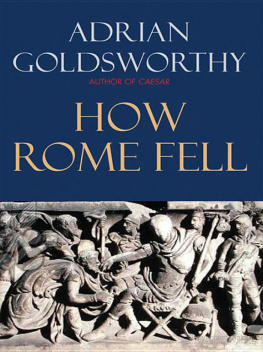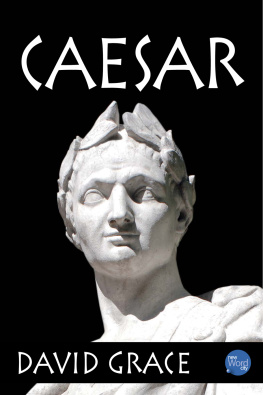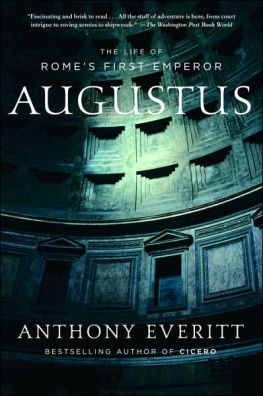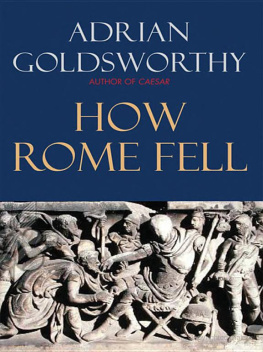AUGUSTUS
By the same author
NON-FICTION
The Roman Army at War, 100 BCAD 200
Roman Warfare
The Fall of Carthage: The Punic Wars 265146 BC
Cannae: Hannibals Greatest Victory
The Complete Roman Army
In the Name of Rome: The Men Who Won the Roman Empire
Caesar: The Life of a Colossus
The Fall of the West: The Death of the Roman Superpower
Antony and Cleopatra
FICTION
True Soldier Gentlemen
Beat the Drums Slowly
Send Me Safely Back Again
All in Scarlet Uniform
Run Them Ashore
AUGUSTUS
First Emperor of Rome

ADRIAN GOLDSWORTHY

First published 2014 in the United States by Yale University
Press and in Great Britain by Weidenfeld & Nicolson.
Copyright 2014 by Adrian Goldsworthy.
All rights reserved. This book may not be reproduced, in whole or in part, including illustrations, in any form (beyond that copying permitted by Sections 107 and 108 of the U.S. Copyright Law and except by reviewers for the public press), without written permission from the publishers.
Yale University Press books may be purchased in quantity for educational, business, or promotional use. For information, please e-mail sales.press@yale.edu (U.S. office) or sales@yaleup.co.uk (U.K. office).
Typeset by Input Data Services Ltd, Bridgwater, Somerset.
Printed in the United States of America.
Library of Congress Control Number: 2014940657
ISBN 978-0-300-17872-2 (cloth: alk. paper)
A catalogue record for this book is
available from the British Library.
This paper meets the requirements of
ANSI/NISO Z39.48-1992 (Permanence of Paper).
10 9 8 7 6 5 4 3 2 1
CONTENTS
ACKNOWLEDGEMENTS
Many of the ideas in this book have developed over many years. At the end of my first year at Oxford back in 1988, I took a course on Augustan Rome, which was wonderfully taught by my tutor Nicholas Purcell, who first brought me into contact with Platner and Ashbys hefty A Topographical Dictionary of Ancient Rome (1929). In the years that followed there were lectures, seminars and tutorials given by the likes of Alan Bowman, Miriam Griffin, Fergus Millar, Barbara Levick, Andrew Lintott and David Stockton, all helping to shape my understanding of the ancient world and Augustus and his era in particular. You will find works by all of these in the notes at the end of this book, and I should also acknowledge the great debt to the many other scholars whose books and articles I have consulted.
More specifically, I must thank those who have helped during the writing of this biography. Philip Matyszak is a friend made during those years at Oxford, whose ideas about the inner workings of the Roman Senate have always been inspirational. Once again he has taken time off from his own writing to read this manuscript and provide many useful comments. Similarly Ian Hughes took a look at a large chunk of the book and provided comments blending an understanding of the history with something of a copy-editors eye. Kevin Powell read the entire book with his accustomed eye for detail and ability to retain sight of the broader picture. Another great friend, Dorothy King, listened to many of the ideas as they developed, invariably commenting with both insight and wit, and also helped by providing some of the pictures. Thanks should also go to my mother for her proof-reading skills, and my wife for taking a look at some sections. They and all the other family and friends have had to live with Augustus in their lives for the last few years, and I am very grateful for their support.
As always, I must thank my agent, Georgina Capel, for creating the situation allowing me to take the time to write this book properly, and for her unfailing enthusiasm for the project. Thanks must also go to my editors, Alan Samson in the UK and Christopher Rogers in the USA, and their teams for producing so handsome a volume.
Finally, I owe a great debt to David Breeze for producing the family trees in this book. Inspired by the tables in M. Cooley (ed.), The Age of Augustus. Lactor 17 (2003), he not only suggested the idea of having more specific tables looking at the family at different stages, but then went to considerable trouble to produce them for me. The family connections of Augustus relatives and their contemporaries are complicated in the extreme, but these diagrams go a long way to making them seem simple.
MAPS
INTRODUCTION
And it came to pass in those days, that there went out a decree from Caesar Augustus, that all the world should be taxed. (And this taxing was first made when Cyrenius was governor of Syria.) And all went to be taxed, every one into his own city. The Gospel according to Luke, later first century AD.
This brief mention in the Christmas story must have been the first time I heard of Augustus, and although it is hard to be precise with such early memories I must have been very young. Like most people who hear or read these words, I doubt that I thought much of them, and it was only later that my love of history grew and I developed a particular fascination for everything about ancient Rome. You cannot study Roman history without coming across Augustus and his legacy. He was the first emperor, the man who finally replaced a Republic which had lasted for almost half a millennium with a veiled monarchy. The system he created gave the empire some 250 years of stability, when it was both larger and more prosperous than at any other time. In the third century AD it faced decades of crisis and survived only after extensive reform, but even so the Roman emperors who ruled from Constantinople until the fifteenth century felt themselves to be rightful successors to the power and authority of Augustus.
Unquestionably important, his story is at the same time intensely dramatic. When teaching students about Augustus, I have always stopped to remind them that he was not quite nineteen when he thrust himself into Romes extremely violent politics hence almost always younger than anyone in the class. It is often hard to remember this when recounting what he did, skilfully and unscrupulously manoeuvring his way through the twisting allegiances of these years of civil war. The great-nephew of the murdered Julius Caesar, he was made the principal heir in his will and given his name, which he took to mean full adoption. Power was not supposed to be inherited at Rome, but armed with this name he rallied the dead dictators supporters and proclaimed his intention to assume all of his fathers offices and status. He then proceeded to achieve precisely that, against all the odds and opposed by far more experienced rivals. Mark Antony was the last of these, and he was defeated and dead by 30 BC. The young, murderous warlord of the civil wars then managed to reinvent himself as the beloved guardian of the state, took the name Augustus with its religious overtones, and was eventually dubbed the father of his country, an inclusive rather than divisive figure. He held supreme power for forty-four years a very long time for any monarch and when he died of old age, there was no question that his nominated successor would follow him.
Yet in spite of his remarkable story and profound influence on the history of an empire which has shaped the culture of the western world, Caesar Augustus has slipped from the wider consciousness. For most people he is a name mentioned in Christmas services or school Nativity plays and nothing more than that. Hardly anybody stops to think that the month of July is named after Julius Caesar, but I suspect even fewer are aware that August is named after Augustus. Julius Caesar is famous, and so are Antony and Cleopatra, Nero, Alexander the Great, Hannibal, perhaps Hadrian, and a few of the philosophers but Augustus is not. One of the reasons is that Shakespeare never wrote a play about him, perhaps because there is little natural tragedy in a man who lives to a ripe old age and dies in his bed. He appears as Octavius in
Next page

